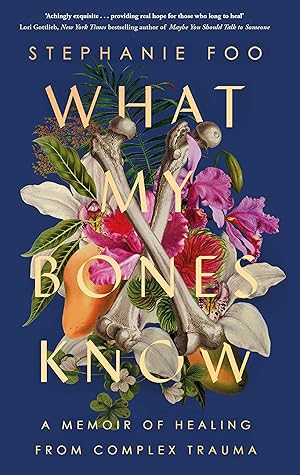More on this book
Community
Kindle Notes & Highlights
Read between
December 31, 2024 - January 1, 2025
But that’s exactly the problem. I’m tired of pulling. I don’t want to pull anymore.
Sufferers of complex PTSD have undergone continual abuse—trauma that has occurred over a long period of time, over the course of years.
The tendency to be aggressive but unable to tolerate aggression from others.
My trauma is literally pumping through my blood, driving every decision in my brain.
With every step, one word echoes in my head: Broken. Broken. Broken.
My father worked for eight hours a day, then escaped to the golf course. When he was home, he was a half-present phantom, decaying in front of the television for as long as he could before being roused with the annoyance of familial obligation.
Resilience, according to the establishment, is not a degree of some indeterminable measure of inner peace. Resilience is instead synonymous with success.
studies have shown that people who suffered from childhood trauma have significantly shortened telomeres.4
studies claimed that having an ACE score of 6 or higher takes twenty years off your life expectancy. The average life expectancy for someone with 6 or more ACEs is sixty years.5
who’ve suffered childhood sexual abuse have smaller somatosensory cortices—the part of the brain that registers sensation in our bodies.
The default mode network is so called because if you put people into an MRI machine for an hour and let their minds wander, the DMN is the system of connections in their brains that will light up. It’s arguably the default state of human consciousness, of boredom and daydreaming. In essence, our ego.
The DMN is the seat of responsibility and insecurity. It can be a punishing force when it over-ruminates and gets caught in a toxic loop of obsession and self-doubt.
This generation of mice had inherited their parents’ trauma.
I didn’t make the list because I was resentful of it. Why did I always have to do the work?
If you really loved someone, it would emanate from you, sincere and overflowing, generous and unconditional. But for me, my father’s love had always been conditional.
talked about the Incredible Hulk. He explained that Bruce Banner was abused as a child, and as a consequence, he developed a trauma-informed rage. Then he was blasted by gamma rays that made his rage an actual superpower. Ham said the Hulk operates exactly like someone who has been triggered. As his rage grows, his IQ decreases. He can’t speak, he can’t form complete thoughts, he loses self-awareness. All he cares about is what’s in front of him and how he can protect himself. And he can’t turn the Hulk off immediately—it takes time for him to calm down, sleep it off.
“Make friends with the Hulk,”
“In my mind, the most helpful thing for you is to be reconnected with another person. Self-regulation is a very insular thing.
Like, ‘I’m not going to actually learn how to be connected to you, but at least I’m going to be able to regulate how upset I get from you.’


